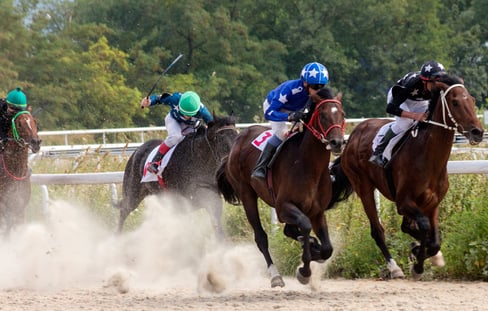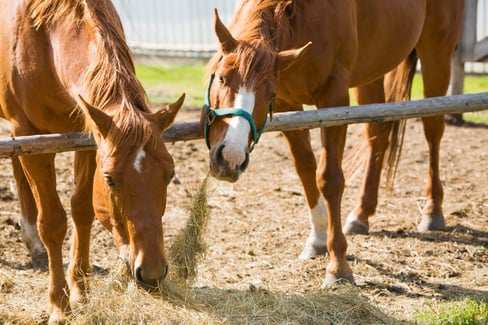Table of Contents
Horse Nutrition Advice
Now that you know what diets to consider for your steed, let’s talk a little bit about general nutrition advice. These tips and tricks are what will help you ensure you’re feeding your equine the best way possible.
Let’s check out some key advice to help your horse maintain a healthy diet.
Forage Is Key
First, you must know that long-stem forage is essential in a horse’s diet. It’s one of the most basic requirements and typically comes in fresh grass forms. Free-choice grass hays are your next option when fresh grass is not available.
A good way to make sure your horse gets long-stem forage is to always keep stacks of hay in front of your animals. This makes it easier for these animals to mimic natural grazing behaviors. Generally, horses need between 1 and 2% of their total body weight in forage, which should be divided among several meals.
Another key piece of advice is to monitor your horse’s overall health and speak with your vet about how this will affect their meal plans. For instance, horses with Cushing’s disease or equine metabolic syndrome should have restricted grazing times. This helps control their diet’s starch and sugar content.
Another situation where horses may need to limit grazing is if they have laminitis or founder. During the fall and spring, fructan content is high in grasses, which can negatively affect horses with these conditions.
Don’t Only Focus on Forage
Although forage is definitely a key part of your horse’s diet, it’s still not the only piece of your horse’s diet that matters. That’s because it doesn’t give the complete nutrition your equine needs. Grass doesn’t contain all the minerals your horse needs, while hay is deficient in specific vitamins.
One way to get around this problem is to include fortified grains in your horse’s diet, which may mean extra calories. Instead, you can provide your horse with multivitamins or supplements that contain the minerals he needs. You can also provide an additional protein source or amino acids, so you’re feeding your horse with a ration balancer.
If you’re supplementing forage, it’s essential to look for the following labels:
- Multivitamin or mineral supplements: one to four ounces
- Fortified grains: five to seven pounds
- Ration balancer: one to two pounds
- Complete feed: twelve to fourteen pounds
Another thing to remember when avoiding focusing on forage is that old horses may need even more supplementation assistance. Incorporating supplements like TRI-ACTA H.A. can help them avoid or heal the negative effects of aging, such as immobility or joint pain.
Remember the Essential Horse Nutrients
Another helpful piece of advice is to know exactly what nutrients our horse needs. Generally, equines need the following for their total
- Fats
- Water
- Carbohydrates
- Minerals
- Proteins
- Vitamins
Like humans, water is also the most essential resource for your horse. Keeping him hydrated with a clean water supply prevents medical conditions and protects him from immune system diseases.
Besides water, horses need carbohydrates and fats to provide them with energy. Remember that higher carbohydrate and fat content should be supplied to growing horses or equines that engage in physical activities frequently.
Horses also need protein for growth and muscle development. Protein also contributes to the horse’s shiny and smooth coat, weight gain, and optimal milk production and performance.
Finally, vitamins are also essential. They range from Vitamins A, B, C, and D to E and L. These vitamins are typically found in green, leafy legumes and forages.
Get Your Eating Schedule Right
The right eating schedule can also affect your horse’s nutrition. You must feed your equine on a set schedule because these animals are used to developing and relying on habits. This also means changes in their eating routine can upset t
As a rule of thumb, horses need pasture or hay throughout the day with grain feedings at least twice. A horse with average weight can eat at least 20 pounds of food daily and drink at least eight gallons of water.
Eating schedules depend on the horse’s small stomach and delicate digestive system. Because of these factors, they must graze or nibble throughout the day instead of eating forcefully once or twice daily.
Recommended Horse Nutrition
As a horse owner, you must remember that poor nutrition can negatively impact the equine’s overall performance. It can also lead to sudden weight loss or weight gain and increases the risk of the animal becoming sick
Horses have five basic nutrients needs:
- Energy
- Water
- Vitamins
- Minerals
- Protein
Let’s dive deeper into these nutrients and what you need to know for a recommended horse diet.
Energy
A horse’s energy is mainly sourced from fats and carbohydrates. The animal needs carbohydrates, especially for competitions, trail rides, and romps across pastures. More importantly, feeding your horse with grass and hay provides them with higher content of complex carbohydrates they need for good digestion.
At the same time, feeding an equine with an ideal amount of fat can help improve vitamin absorption. Fat contains fatty acids, which can also aid in maintaining an optimal energy level for the horse to power through the day.
Protein
Another natural nutrient essential in a horse’s diet is protein. You can find this source in grasses and hay stacks or add it to horse feeds. Protein is the main source of amino acids and equines need it for:
- Tissue repair
- Tissue growth
- Maintain healthy muscles
- Strong immune system
Growing horses need 12% to 18% of crude protein as part of their diets. On the contrary, mature horses need 8% to 12%.
Vitamins and Minerals
A horse’s diet should contain the following minerals:
- Sulfur chloride
- Phosphorus
- Calcium
- Magnesium
- Chloride
These minerals are essential to keep a horse’s bones and teeth strong. They can also help maintain proper muscle growth, digestion, healthy nerves, and stable immune system function.
Aside from minerals, vitamins are also crucial for an equine’s blood clotting, reproduction, and maintaining the following body parts:
- Muscles
- Skin
- Eyes
- Bones
- Coats
Water
Equines should drink at least six to eight gallons of water daily. Aside from keeping the animal hydrated, water helps with digestion, body temperature regulation, and vitamin absorption. Lack of water intake can cause certain medical conditions faster than a lack of food.
Equines thriving in hot environments or those more prone to sweat because of their high activity levels need more water than their sedentary counterparts.
Horse Nutrition Requirements
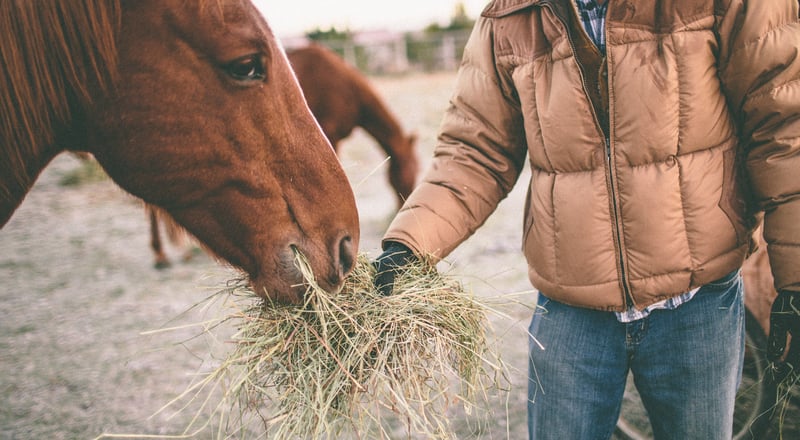
While equine animals such as horses rely on forages (preserved hays, pasture grasses, legumes) as their primary source of nutrition, you must also consider that the enzymatic digestion of fats, protein, and carbohydrates is essential. The digestion happens in the small intestine, where the following nutrients are absorbed:
- Amino acids
- Vitamins and minerals
- Sugars
- Long-chain fatty acids
Nutrient sources not digested and absorbed in the small intestine enter the large intestine, where microbial degradation occurs.
Generally, an ideal source of roughage comprises at least half of an equine’s total ration when you consider dry-matter weight. Vets also recommend horses must receive at least 1.5% to 2% of dry matter as part of their roughage daily. This can include legumes, range grasses, and preserved forages, including:
- Hay cubes, beet pulp, and hay-based pellets
- Haylage
- Other fiber-rich food sources
You must also remember that horse diet requirements depend on several factors, including the animal's age, whether there’s a medical condition, the animal’s housing or management, and the current environment.
For instance, stressed horses may need more Vitamin B. On the other hand, you may want to add antioxidants to provide for horses recovering from illnesses. Senior and aging horses also need more Vitamin C for a stronger immune system.
Speaking to your veterinarian is the best way to ensure your horse meets horse nutrition requirements.
Horse Feed Nutrition Information to Consider
Aside from knowing horses' five primary nutrient needs, there are other pieces of information to know when feeding your equines. First, you must understand that significant factors exist to help you and your vet design a diet plan that works, including age, activity level, health, and shelter.
Next, if you prefer feeding grains to your horse, you must provide him with smaller meals more frequently than feeding him with one large meal. Small meals allow horses to digest food better because their digestive systems are small and unique.
You’ve also got to think about the animal’s size. Bigger animals need meals with higher energy or protein content to increase their muscle mass. On the other hand, smaller animals can get away with lower levels of these nutrients.
Consulting with your vet is the best way to ensure you’re giving your steed the right levels of horse feed. Veterinarians are experts in providing nutrient recommendations, including feed stores, hay suppliers, and feeding habits.
Horse Nutrition and Feeding Mistakes to Avoid
Horse nutrition can be a lot more nuanced than you might think. As a result, it can be easy to make a few mistakes here and there.
A couple of common horse diet issues owners deal with include over and underfeeding. However, these aren’t the only nutrition mistakes that can crop up. To help you avoid common pitfalls, we’ve listed the most common horse nutrition and feeding mistakes to remember.
Overfeeding
It’s all too easy to load your horse up with tasty treats and yummy eats. Unfortunately, this also makes it all too easy to overfeed your steed. And even though you want to provide them with treats, going overboard is a no-no.
Overfeeding can cause obesity, leading to other issues, including laminitis and equine metabolic syndrome. Remember that these equines have simple digestive systems. A simple diet filled with good pasture grasses or hay stacks combined with ample concentrate mixes and supplements is enough.
It’s also best to have your hay bales tested to check for any missing nutrients. This way, you know what additional supplements you need to provide for your horse.
Underfeeding
If overfeeding is more common in growing horses, senior and aging horses are more prone to experiencing being underfed. Most of the time, feeding them with hay or pasture isn’t enough. You must mix concentrates, grains, and supplements into their diet.
You can also add supplements such as TRI-ACTA to help boost your horse’s joint condition as they age. Because TRI-ACTA contains only naturally-occurring joint health-boosting ingredients that naturally occur in your horse’s body anyway, you don’t have to worry about the supplement affecting your horse’s overall diet.
Calculating Volume and Not Weight
Most horse owners think measuring volume is the same as measuring weight. But it’s not the ca
Always remember to measure concentrates, grasses, and hay bales by weight. We recommend estimating the hay’s weight by small square bales. But you must also not forget that these small square bales don’t have the same weight.
On the other hand, grain concentrates should be weighed using the scoop method. Measuring your horse feed by weight ensures you give the exact amount to prevent over and underfeeding.
Not Taking Dental Problems Seriously
We know dental problems aren’t related to a horse’s nutrition. But you must understand that an equine can only eat properly when his teeth are in optimal condition. This means you cannot neglect dental issues, especially with senior horses. Aging horses are more prone to losing their teeth, affecting their diet.
At the same time, it’s also common for mature horses to develop sharp edges on their teeth. This can cause pain when they chew, so regular dental care is vital in horses.
Not Providing Enough Water
Clean and abundant water should also be a priority. It’s critical to your equine’s health because impaction colic will likely occur in horses not given enough water. The best water temperature is at least half a bucket of hot water combined with cold.
Remember, like humans, horses need to stay hydrated to stay healthy. Ensure your horse gets six to eight gallons of water a day to stay feeling his best.
What to Look For in Horse Feed Nutrition Options
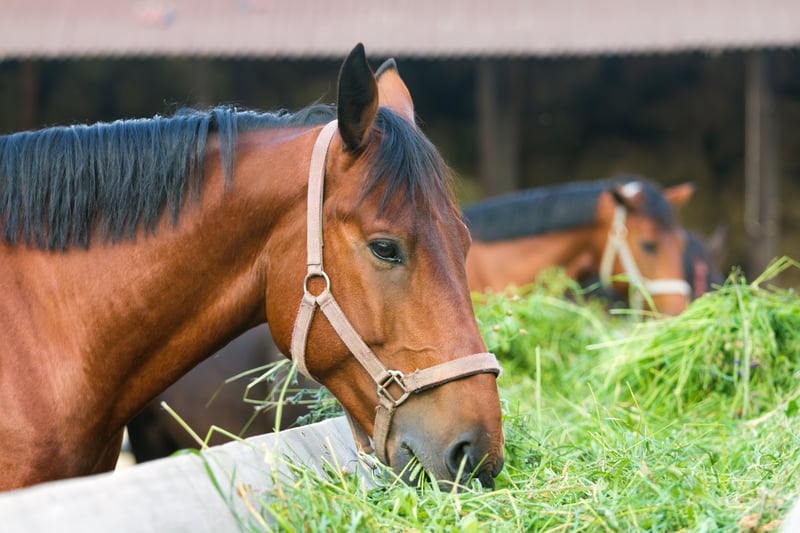
Here’s the thing about choosing the suitable horse feed: there’s no universal answer. The right diet plan you provide your horse is not a one-size-fits-all. This is why considering certain factors is critical in choosing the best horse feed for your animal.
The table below breaks down a couple of factors to consider when looking for horse feed nutrition options and what each factor indicates.
|
Important Factors to Consider |
Indication |
|
Age |
Determine the nutrient requirements you must provide (young horses need more minerals and vitamins to support their growth, while senior horses need a fiber-rich diet) |
|
Physiological Stage |
Different nutrition is needed by stallions, pregnant, and growing horses |
|
Relevant Medical Condition |
You can use the Body Condition Scoring system as a tool to consider your horse’s medical needs in determining their diet, and help determine whether you’re overfeeding or underfeeding your horse. |
|
High-quality Forage |
Can compensate for the nutrients that are lacking in the horse feed |
Summary
At the end of the day, getting a horse’s diet right will affect his overall health and wellness. The key is ensuring your animal has the right nutrients to stay healthy and live a long and happy life!
You must also ensure you don’t over or underfeed, which can lead to health hazards for your animal. And, of course, always consult your veterinarian to make sure that your horse’s diet is on the right track.
One way you can make sure your horse has all the right nutrients in its diet is by introducing supplements. Supplements such as TRI-ACTA and TRI-ACTA H.A. can be game-changers in supporting a healthy, happy horse. Get in touch with us today to learn more about these supplements and place

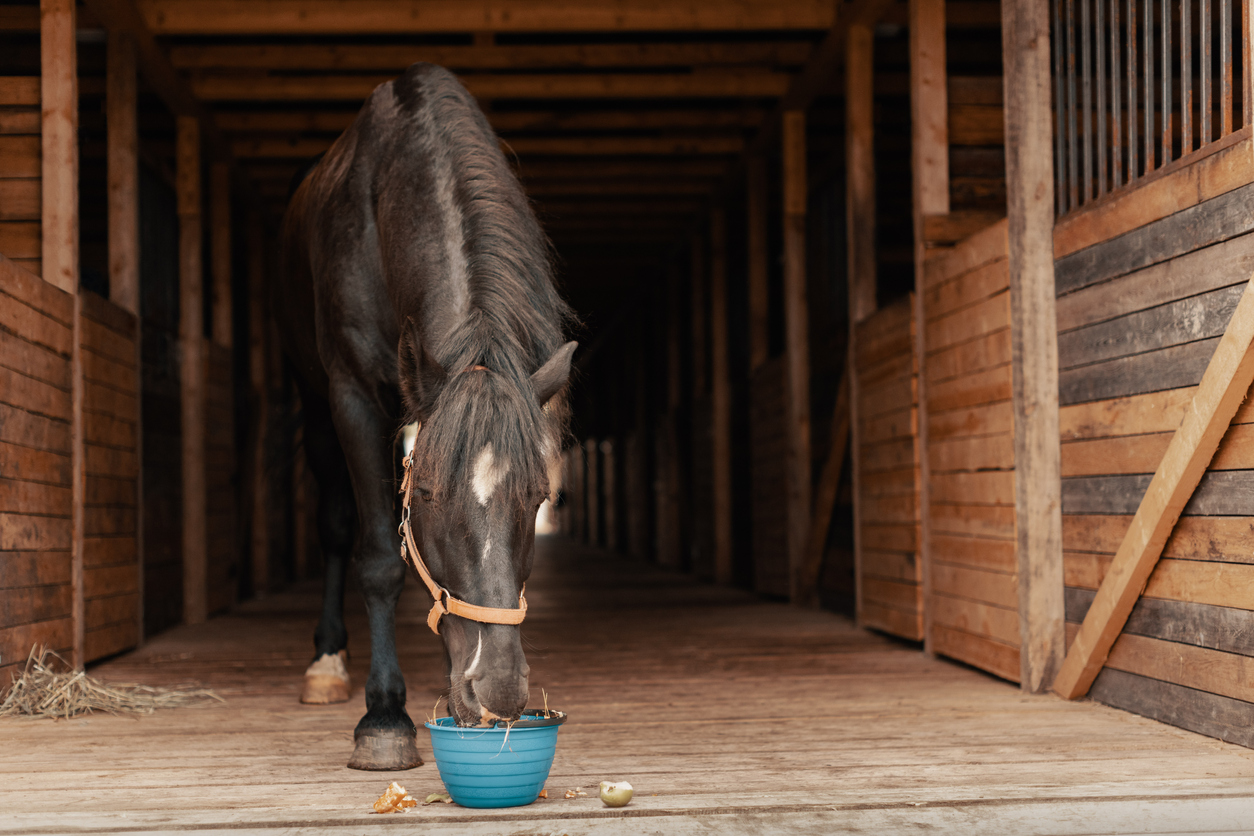

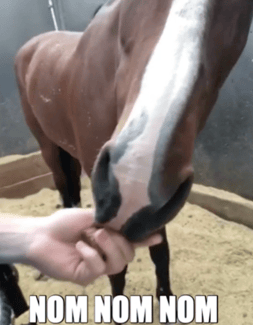
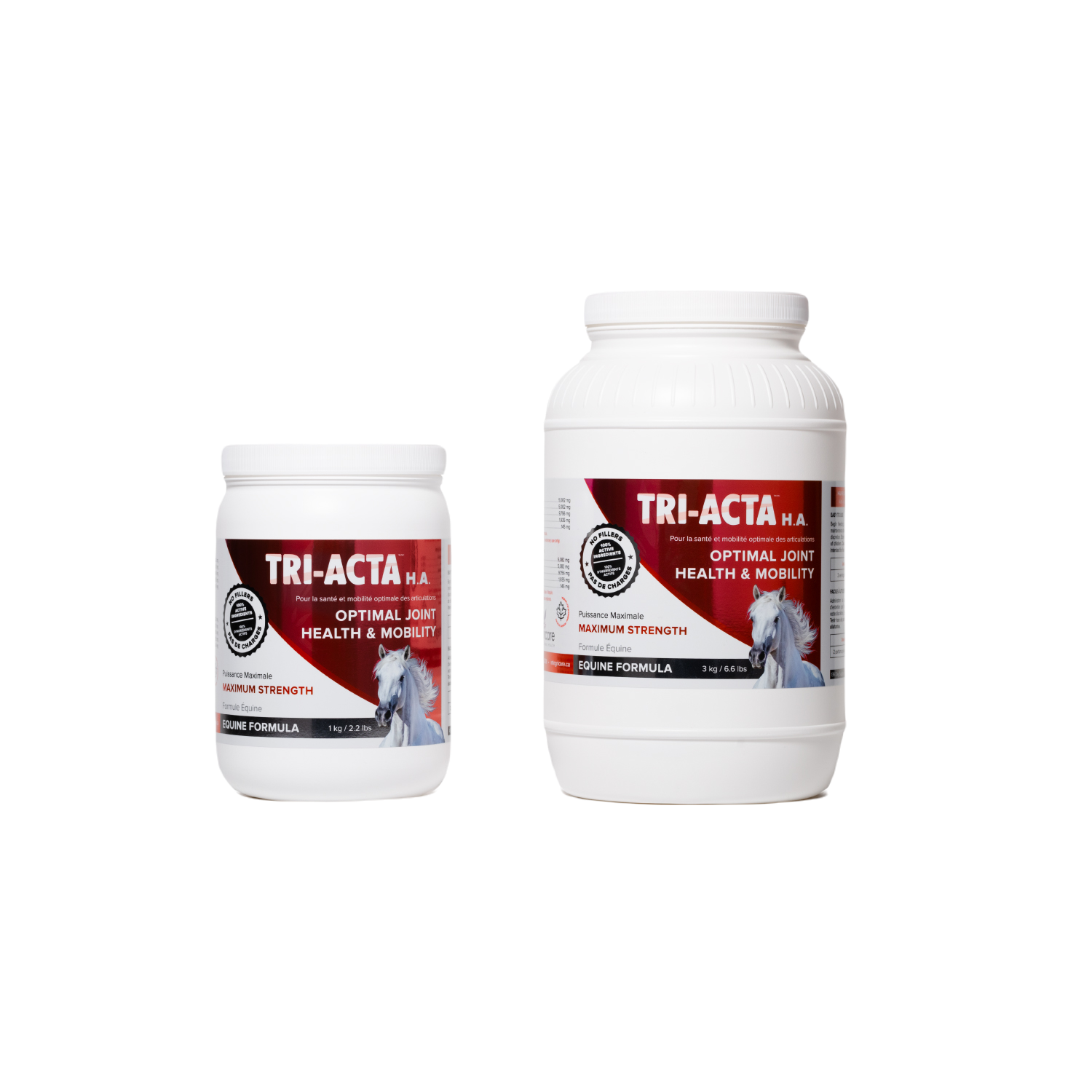
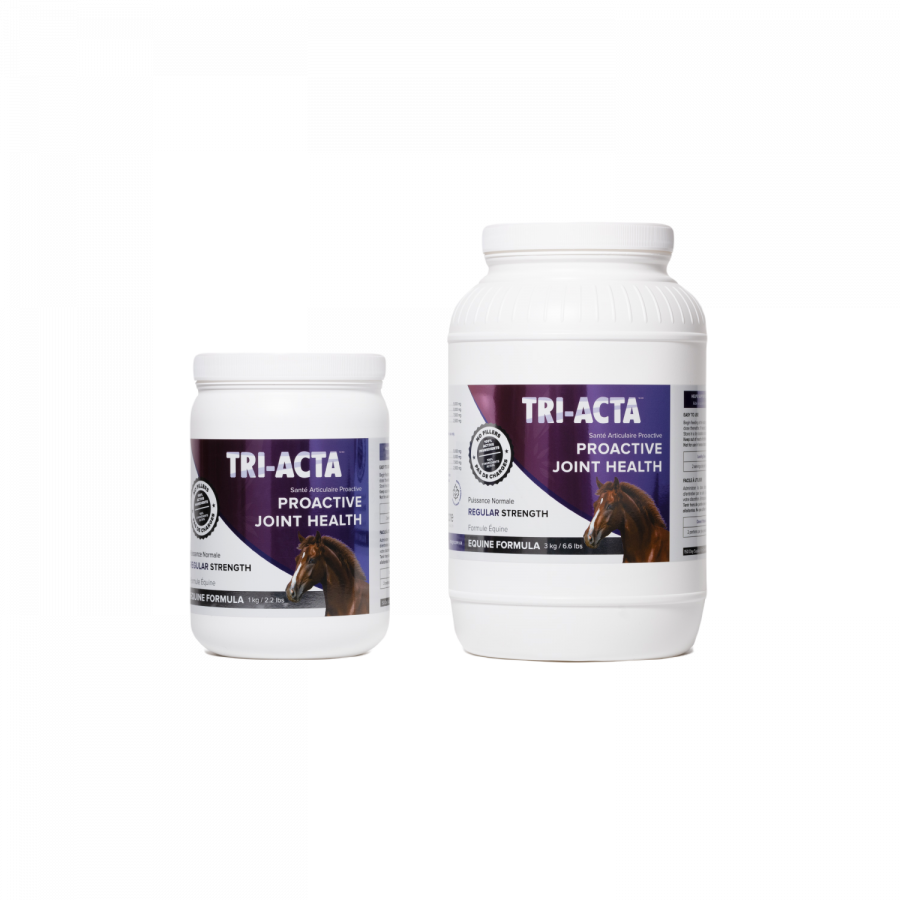
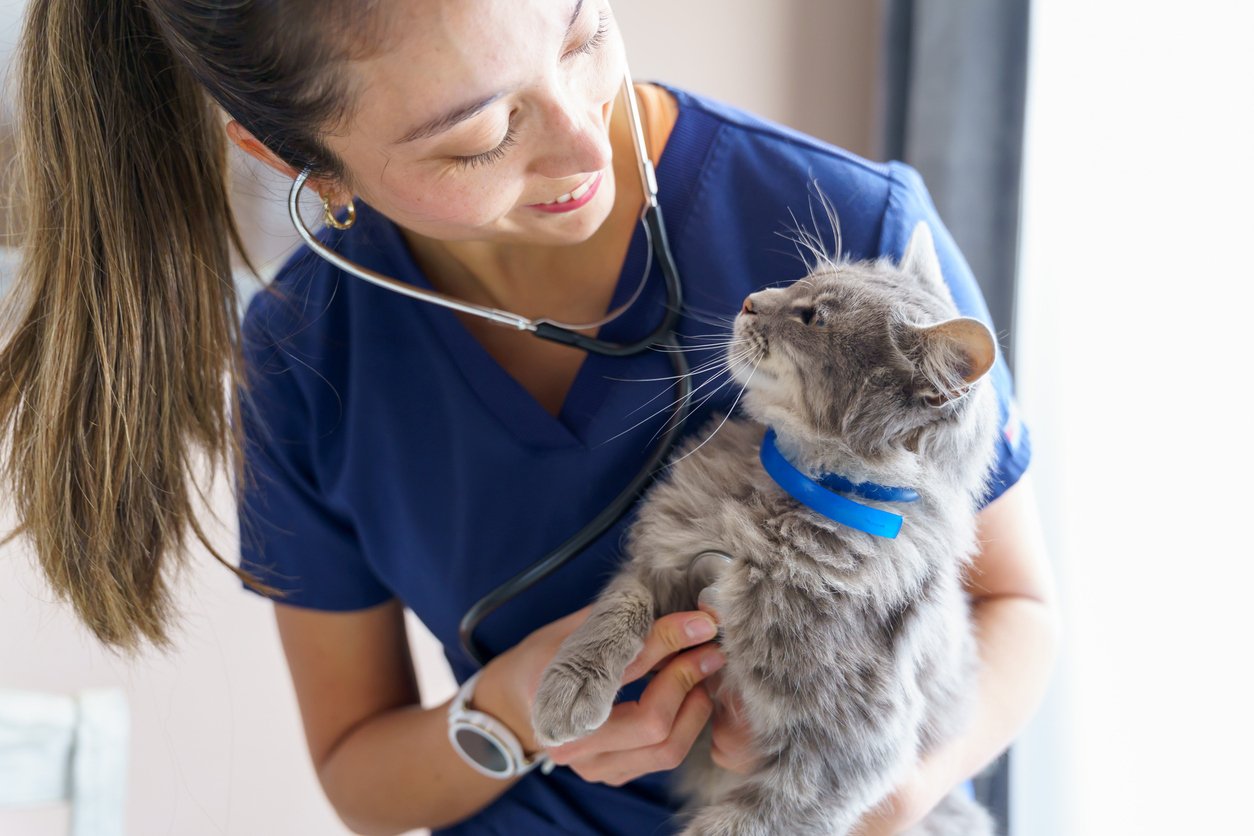
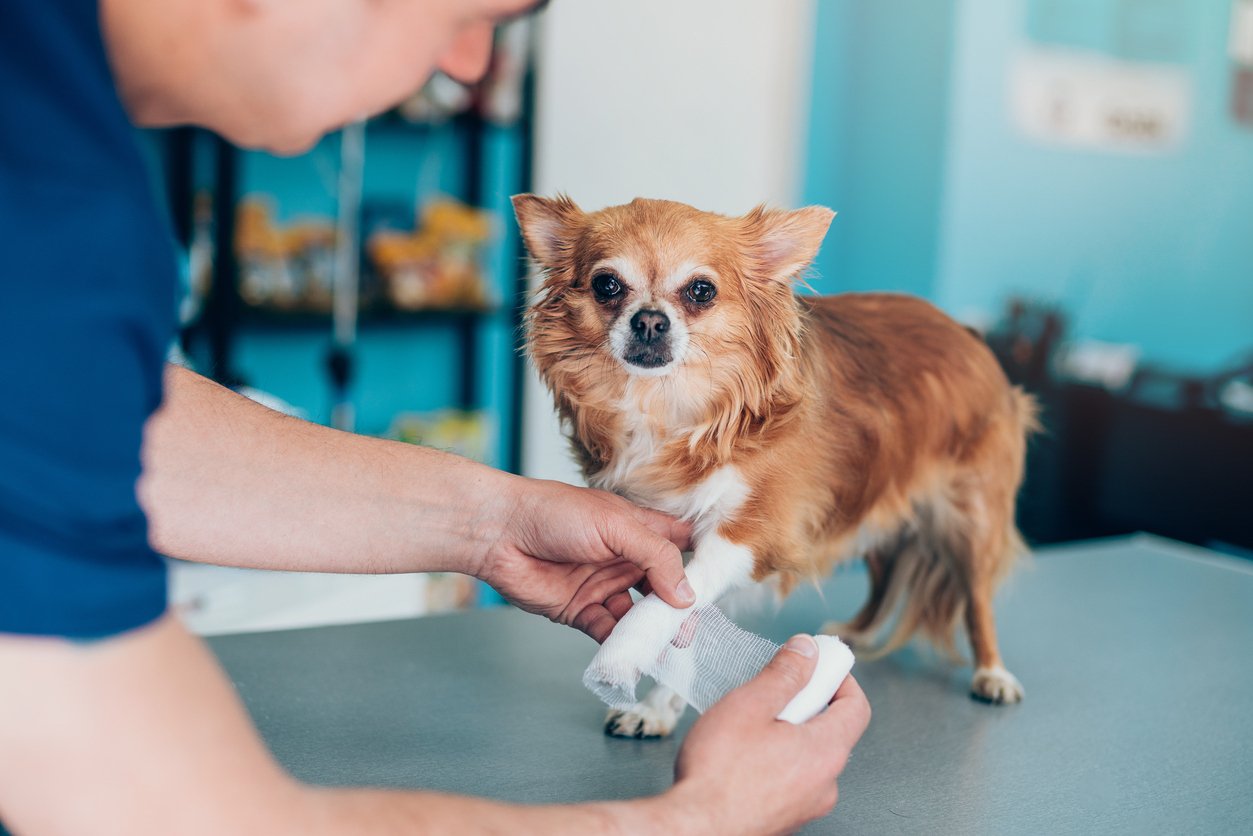
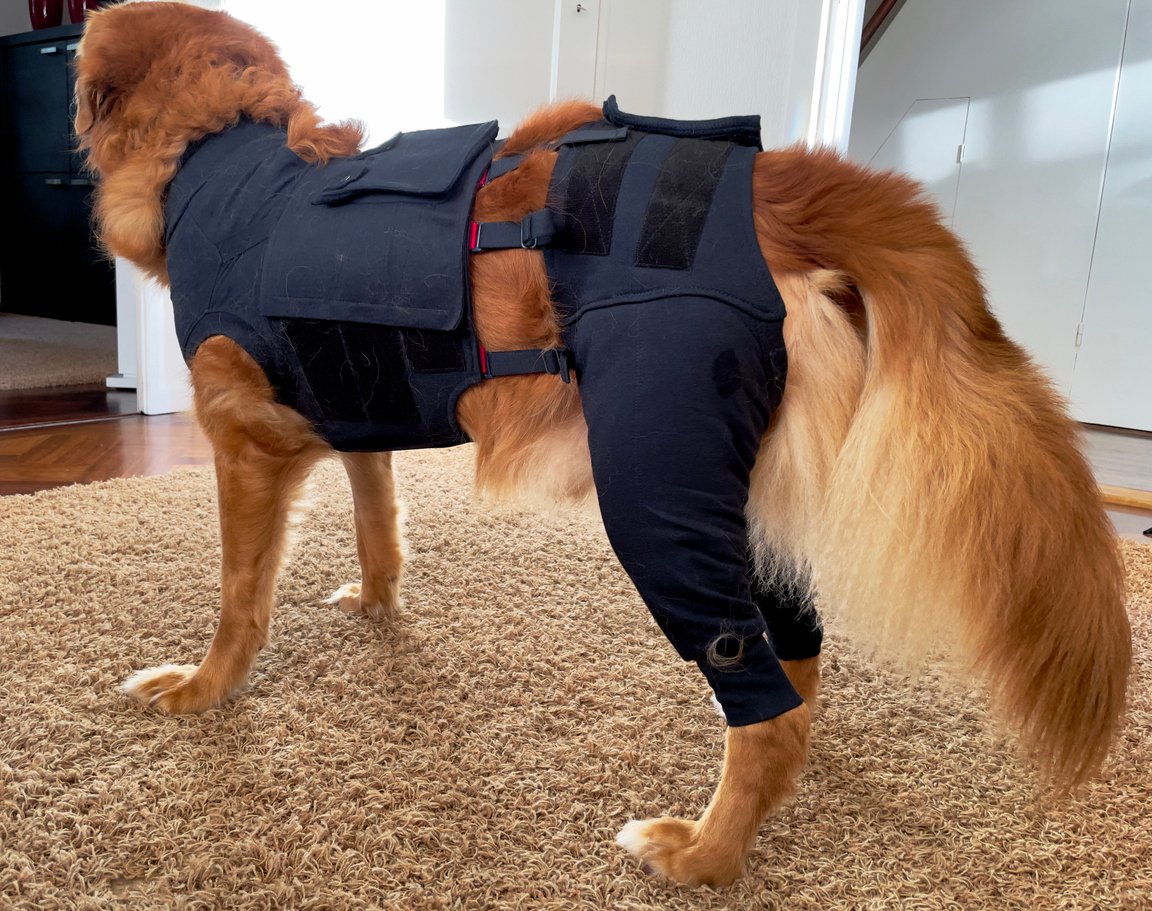

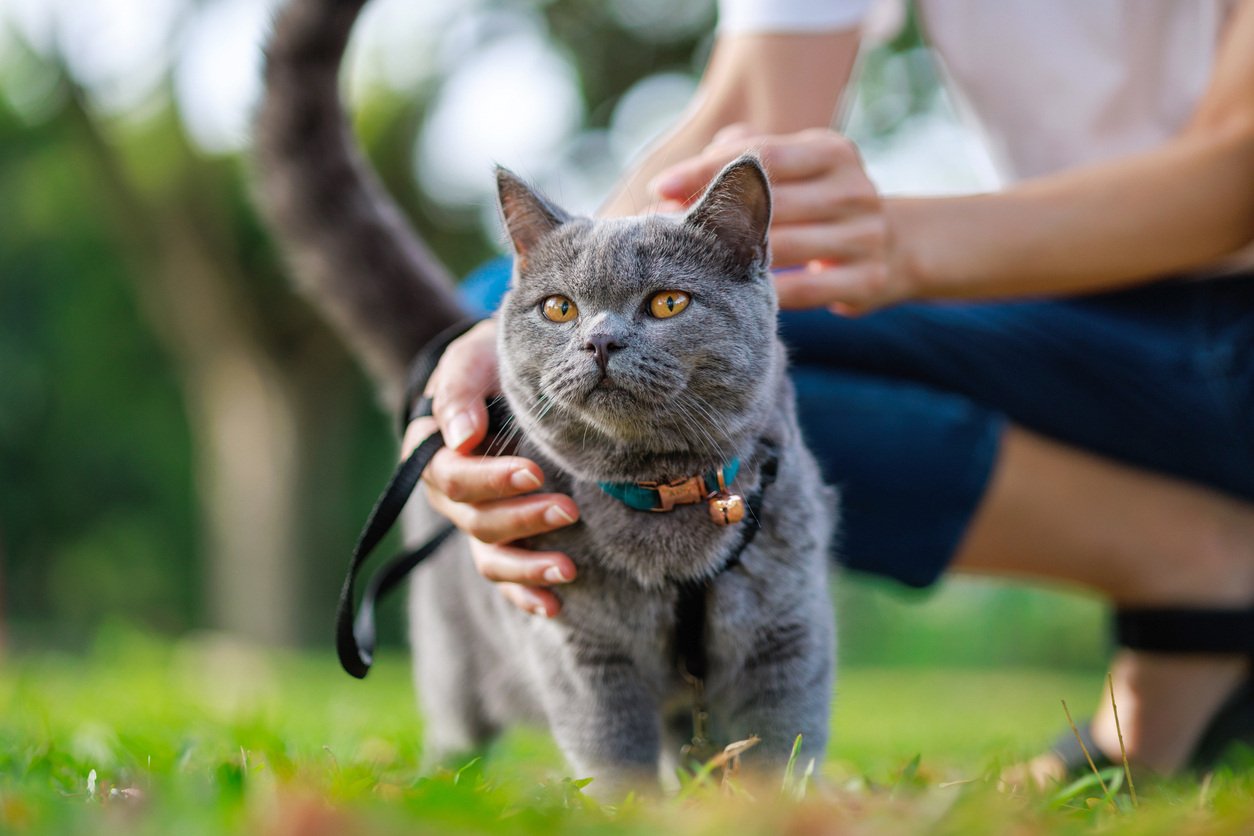
.jpg?height=2000&name=Cliick_Integricare-DISPLAY-REVISEDV2%20(1).jpg)
